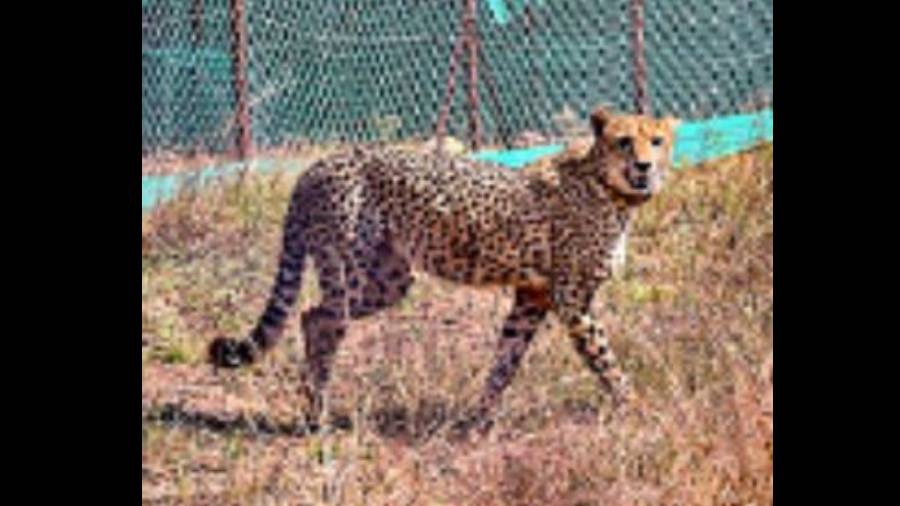A five-and-a-half-year-old cheetah brought from Namibia as part of a project to introduce cheetahs to India’s wilderness has died from renal failure in the Kuno National Park in Madhya Pradesh, project scientists said on Monday.
Sasha was among the first set of eight cheetahs from Namibia flown into Kuno on September 17 last year and welcomed by Prime Minister Narendra Modi. She was among four Namibian cheetahs still confined to hunting enclosures and not released into the wild. Sasha had been sick for several months from kidney failure, scientists said. Three scientists tracking the project — the first intercontinental transfer of a large carnivore for release into the wild— said Sasha’s death, while unfortunate, was not a setback because the project had factored in higher cheetah mortality than it had faced till now.
“This is not a setback. The cat was a captive animal and had no chance of survival in the wild anyway,” said Vincent van der Merwe, a cheetah specialist at the Metapopulation Initiative’s Cheetah Metapopulation Project, an effort to manage clusters of cheetah populations across South Africa. In February this year, South Africa sent 12 cheetahs to Kuno.
“The project depends on the survival of the 12 cats from South Africa and the five cats that had been in the wild in Namibia. The three captive Namibian cats were never going to make it in the wild,” van der Merwe said. Sasha’s death, scientists say, was not entirely unanticipated. “Her death was not really unexpected,” said Adrian Tordiffe, a cheetah specialist at the University of Pretoria in South Africa who is advising the cheetah introduction project.
“I had told the vets who were treating her that the renal damage was irreversible and that it was just a matter of time before her condition deteriorated to such an extent that she would no longer respond to treatment.” Scientists say that renal failure in captive cheetahs is a complex problem. There is currently no clear evidence indicating the reason they develop it, but Tordiffe has put forward theories that relate to their diet in captivity.
Van der Merwe too said that renal failure was a problem observed in cheetahs in long-term captivity. Medical documents shared by scientists with The Telegraph indicate that Sasha had kidney issues even in Namibia. “This cat was compromised even before she had arrived in India,” said a scientist who requested not to be named. “The question to be asked is: why was she brought across for this high-profile introduction if it was known that she was not a wild and functional animal?”











